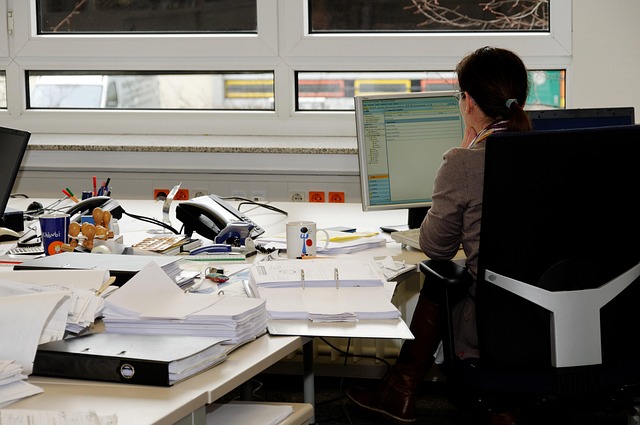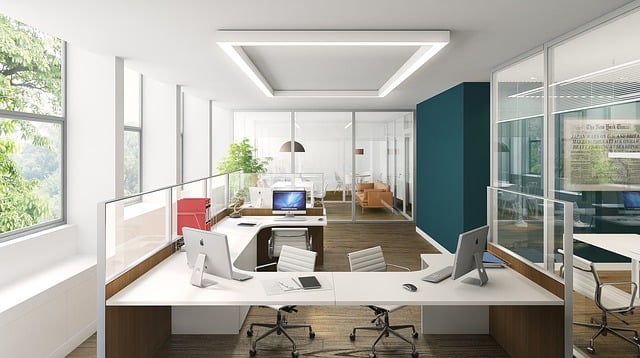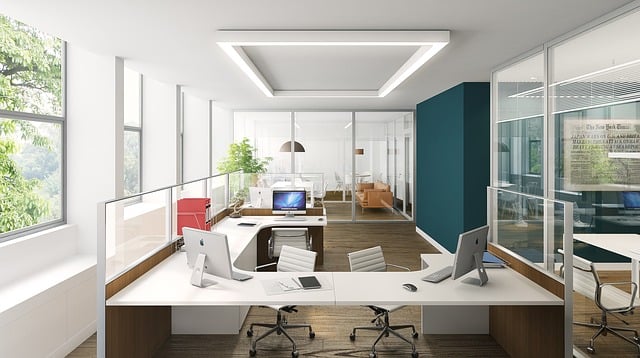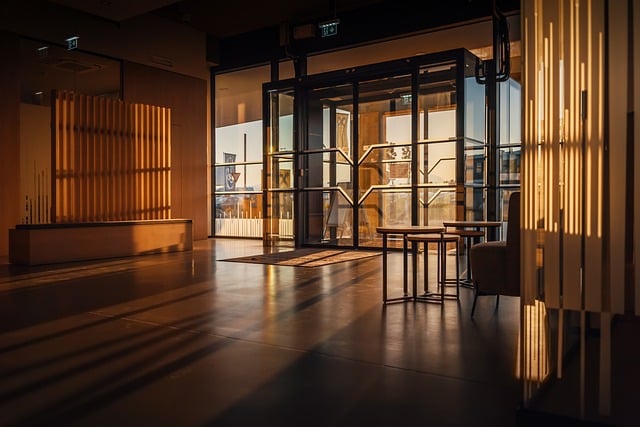Shared coworking spaces are revitalizing urban landscapes by transforming underutilized spaces into collaborative hubs, challenging traditional real estate norms. This trend caters to flexible work demands, fostering creativity and economic growth. Real estate professionals adapt with diverse, accessible spaces, redefining productivity and community engagement beyond conventional offices.
Shared coworking spaces are transforming urban landscapes and revolutionizing real estate. In today’s dynamic business environment, these collaborative hubs offer a fresh approach to work, combining flexibility with community. This article delves into the rise of shared coworking spaces, exploring their impact on real estate markets and how they foster productivity through community and collaboration. From bustling metropolis to vibrant startups, these spaces are reshaping the way we work.
Transforming Urban Landscapes: The Rise of Shared Coworking Spaces

The dynamic shift towards shared coworking spaces is transforming urban landscapes, challenging traditional real estate norms. This innovative concept has sparked a revolution in the way we work and interact within cities. The rise of shared workspaces offers a fresh perspective on office culture, promoting collaboration and community among professionals. By leveraging underutilized spaces, such as converted warehouses or renovated retail units, these coworking hubs inject vibrancy into urban areas once dominated by monotone, corporate structures.
This trend not only revitalizes real estate but also caters to the modern workforce’s desire for flexibility, networking opportunities, and a more engaging work environment. The shared model encourages a diverse mix of businesses, from startups to established enterprises, fostering an ecosystem that stimulates creativity and drives economic growth. As cities embrace this evolving trend, we witness the emergence of dynamic, interconnected neighborhoods where work becomes an extension of urban life, seamlessly blending with the social and cultural fabric of the metropolis.
Real Estate Revolution: Unlocking New Possibilities for Businesses

The concept of shared coworking spaces is reshaping the real estate landscape, offering a dynamic and flexible alternative to traditional office setups. This trend empowers businesses, especially startups and freelancers, by providing accessible and affordable workspace options. With the rise of remote work, the demand for these spaces has skyrocketed, challenging the status quo of static, long-term leases.
Real estate professionals are now navigating this shift, recognizing the potential to unlock diverse opportunities. Coworking spaces cater to a wide range of industries and disciplines, fostering collaboration and innovation. This revolutionizes the way businesses operate, offering not just a place to work but a community and a platform for growth. As such, real estate strategies must adapt to meet these new demands, ensuring that properties are designed or adapted to accommodate the evolving needs of modern workplaces.
Community and Collaboration: How These Spaces Foster Productivity

Shared coworking spaces are revolutionizing the way we think about real estate and productivity. Unlike traditional offices, these dynamic environments encourage collaboration and community, fostering an atmosphere that enhances creativity and efficiency. Members from diverse backgrounds and industries gather in these shared spaces, providing opportunities for cross-pollination of ideas and unique partnerships. The hustle and bustle of conversation, the occasional brainstorming session, and the sense of collective purpose create a vibrant tapestry where productivity gains new meaning.
In addition to facilitating collaboration, coworking spaces offer a flexible work environment that caters to various needs. Whether it’s a freelancer seeking a professional setting or a startup needing scalable space, these shared offices provide a sense of belonging and community. The social interactions and networking opportunities within these spaces contribute to personal growth and professional development, making them not just places to work but thriving hubs where folks can connect, learn, and thrive.






